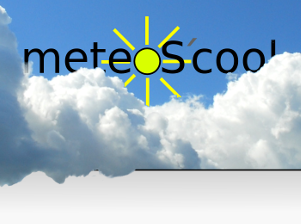On top of providing top-accuracy weather information, meteoblue has always strived to increase the awareness of the principles of meteorology and climatology amongst the general public. On the following subpages, you will find weather- and climate-related resources, divided into several sections.

meteoScool
This project is primarily aimed at teachers and students, who explore the wonderful world of the weather-related sciences.
In meteoScool, you will learn the basics about the Earth and its atmosphere, various aspects of the weather as such, the difference between the weather and climate and their influence on the biosphere, and you will also find a section where you can practise your newly acquired knowledge!

Weather model theory
Forecasting the weather is an extremely complex scientific endeavour. In this section, you will find the basics about what a weather model is, what it’s coverage and resolution mean, how they are designed, what the differences between weather models are, and much more.

Time dimensions
Forecast is weather data for the future. meteoblue forecasts are always simulated data and available for up to 14 days in the future. Weather forecast models are updated twice per day, forecast data are updated every 5 minutes if radar and satellite data are available.

Spatial dimensions
Similarly to the previous section, on these pages you will be guided through the spatial aspects of weather data. We will explain what gridded datasets are, what purpose they serve, as well as the variety of meteorological products focused on different aspects of the weather’s spatial dimensions.

Case studies
meteoblue conducts proprietary, scientific in-house case studies that cover a wide range of topics. The initial spark for these may be questions from our users and customers, topics that are currently trending, or our intrinsic interest and thirst for knowledge.
The case studies range from climate change scenarios to local weather phenomena, or extreme weather events, correlations between the weather and other forces of nature, and much more. On these pages, we present a selection of case studies we have conducted in the past.



